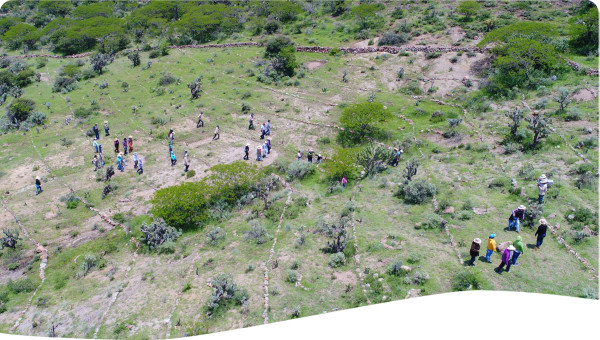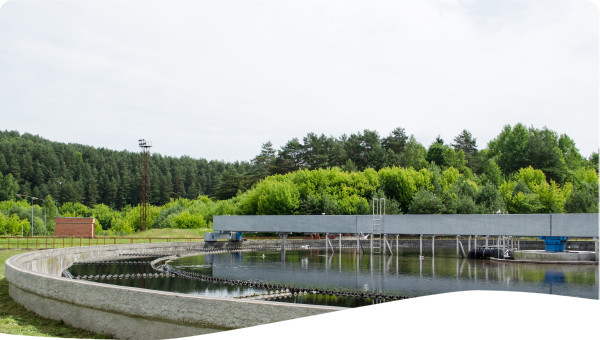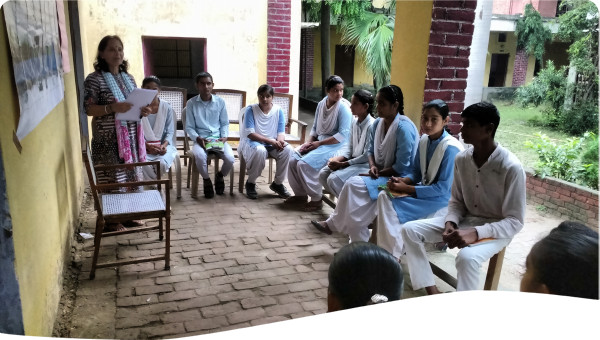The majority of the Mediterranean islands encounter water scarcity challenges due to their small catchment areas and the impacts of emerging climate vulnerability and change. To tackle the problem of water scarcity, the Global Water Partnership Mediterranean (GWP-Med) has developed the concept and content of the Non-Conventional Water Resources (NCWR) programme implemented in Greece since 2008, in Malta since 2011, and in Cyprus since 2013.
The majority of the Mediterranean islands encounter water scarcity challenges due to their small catchment areas and the impacts of emerging climate vulnerability and change. Malta and Cyprus have been acknowledged as the water poorest countries in Europe, while a large number of Italian and Greek islands depend on desalination and even on water transfers by tankers.
Droughts and, in cases, flash floods, have a serious impact on human and environmental security. This includes threats to local economic activities (that depend on seasonal tourism and small scale agriculture), to health safety (including due to poor water quality, flooding events, etc.) and to ecosystems safety (that are often of small scale, fragile and lack adaptive capacity).
The NCWR Programme in the Mediterranean is designed and implemented by the Global Water Partnership - Mediterranean (GWP-Med) and partner institutions, organisations and companies with Coca-Cola as a key collaborator. It aims at advancing the use of NCWR, mainly rainwater harvesting and grey water reuse, improved by innovative techniques and methods, in water scarce communities in Mediterranean islands and insular countries, as a cost effective method for water availability and climate change adaptation at local level.
It is implemented in Greece since 2008, in Malta since 2011, and in Cyprus since 2013. It is a multi-stakeholder Programme, bringing together a regional organisation [GWP-Med, implementing agent] with actors from the private sector [the “Mission Water Environmental Program in Greece, the Coca-Cola System in Cyprus, and Malta and The Coca-Cola Foundation] as partners and primary donors, as well as central and local authorities (municipalities in the Greek Islands; Ministry for Gozo and Ministry for Energy & Health in Malta; Ministry of Education in Cyprus)] and NGOs [Mediterranean Information Office for Environment, Culture and Sustainable Development; Nature Trust Malta].
The NCWR Programme activities are designed and implemented by GWP-Med. Following the initial identification of needs and on-site visits, potential sites are identified, taking into consideration primarily water scarcity issues and current and future water challenges. All applications are site-specific, and the final selection is made according to local needs and costing. Infrastructure works are of small and medium size. Technical works are carried out by contractors, selected through a tendering process, according to EU legislation and regulation.
The Program offers a holistic approach toward NCWR management. Activities include:
- Demonstration applications of RWH and NCWR (mainly grey water reuse) systems at local level;
- educational activities and material used in schools in the countries;
- awareness raising activities aiming at educating people to a new water culture, necessary for addressing the current and future water scarcity challenges, as part of the climate change mitigation and adaptation strategy. It is also complemented by regional policy dialogue on the subject as well as capacity building activities for targeted stakeholders (local and central authorities, NGOs, technicians, etc.) in order to advance NCWRM.
The educational activities are carried out by the educational partners in cooperation with the respective Ministries of Education in the countries. Country-specific educational materials (educational packages, video games, posters, etc.) have been developed, like the “Gift of Rain” and “Alter Aqua”. Hands-on activities are implemented in schools using this material. Annual teachers training seminars are held under the auspices of the respective Ministries of Education in the countries.
Awareness raising involves traditional, electronic, and digital tools (brochures, videos, animated videos, video games, etc.) and targets various audiences, through newsletters, publications, advertorials, press releases and social media.
Outcomes and results achieved include:
- Implementation of more than 75 site-specific applications of NCWR systems in public buildings and areas, in 31 water scarce insular communities.
- Total Beneficiaries in insular communities: 95,000
- Educational activities targeted more than 11,000 students and 2,000 teachers
- Technicians’ seminars have attracted 250 technicians • Capacity building workshops at local, national, and regional level
- Contribution to the National Water Management Plan for the Maltese Islands (2015) and the local and regional sustainable development strategies (Eco-Gozo)
- Raising political attention at national and regional level, as certain activities are supported by key institutions in the countries (Secretariat of the Union for the Mediterranean, Ministry for Gozo, Maltese Ministry for Energy & Health, etc.)
Replicability and transferability: The Programme offers site-specific practical applications of NCWR systems utilizing both innovative and conventional technologies available in the countries. It can thus be expanded and replicated in other water scarce areas in the Mediterranean and beyond. Its innovation lies in its holistic approach. The infrastructure works offer both tangible results (rainwater or greywater to be reused) and act as demonstration applications of locally appropriate technologies. The educational activities target the young generation creating a new water culture of sensitized and responsible consumers. Awareness raising activities target the general public drawing their attention to critical water challenges and offering easy and cost-effective solutions to address these at domestic, community, local and regional level. Starting from one country the Program has already expanded to four countries, while demand for replication has been expressed by other Mediterranean countries who face water scarcity issues and urge to advance the use of NCWR, e.g. Cyprus, Lebanon, Tunisia, etc.
Sustainability: NCWR is a cost effective method, as investment for infrastructure is inexpensive. The use of innovative materials and techniques enables the long term operation of NCWR systems with minimal operational and maintenance costs. Sustainability of applications is secured through agreements with the beneficiaries to maintain the systems. Supporting local, and in cases remote, communities to respond to water security challenges through sustainable solutions is of distinctive added value for improving the inhabitants’ livelihoods.
Involvement of local authorities in programme implementation, by contributing to the NCWR applications, increases ownership. This ensures the sustainability of the demonstration applications and contributes to the Programme’s objective to promote NCWR practices as a sustainable way for water availability.
Awareness raising of targeted groups and general public can create the acceptance of NCWR at local level and facilitate the expansion of this cost-effective method at domestic and community level.
 Case studies
Case studies



